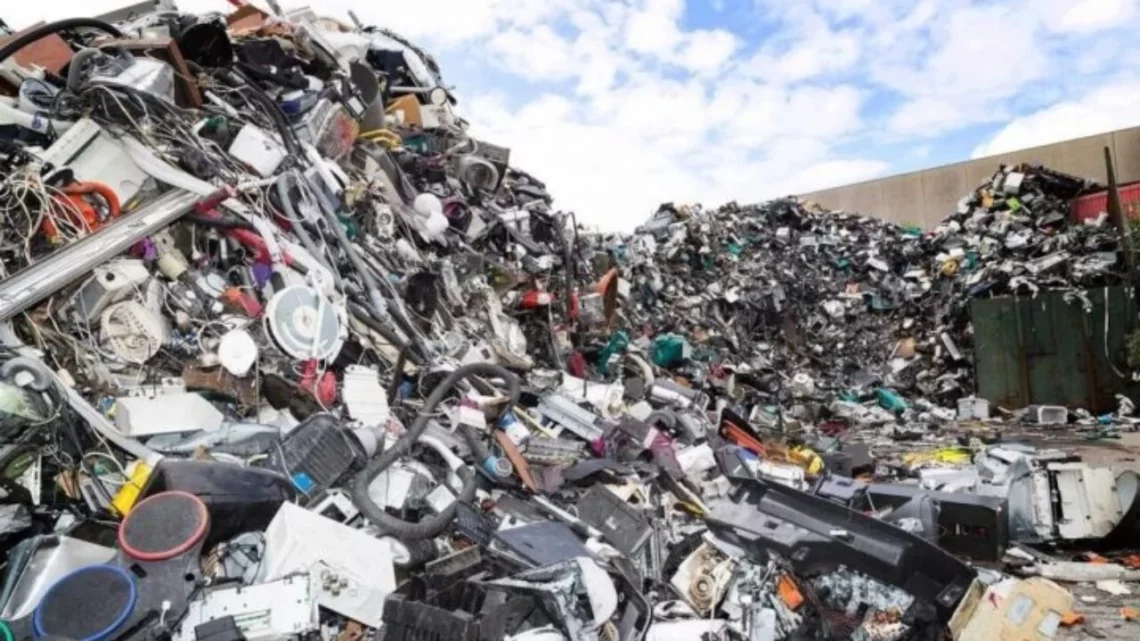Nigeria ranks as Africa’s third-largest producer of electronic waste (eWaste), exposing millions to severe health risks due to inadequate disposal practices, a new report by the International Telecommunications Union (ITU) has revealed.
The report, released in the ITU’s fourth Global eWaste Monitor, shows that Nigeria generated 500 million kilograms of eWaste in 2022, following Egypt and South Africa, which produced 690 million kilograms and 530 million kilograms, respectively. Despite the growing volume of discarded electronic devices, the country’s recycling rate remains below 1 per cent, raising serious concerns about the public health impact of toxic waste from items such as used mobile phones, computers, and televisions.
These discarded electronics contain hazardous substances, including mercury, lead, and cadmium, which can leach into the soil and water, posing significant health risks. According to the ITU, mercury alone can cause severe brain damage, impair coordination, and damage the nervous system. With inadequate recycling efforts, Nigerians are increasingly exposed to these dangerous toxins.
“The rate at which electronic waste is growing is alarming, and it poses both environmental and health risks,” the ITU report warned. “In countries like Nigeria, where recycling infrastructure is underdeveloped, the consequences could be catastrophic.”
The ITU’s report highlighted that Nigeria is not alone in facing a mounting eWaste crisis. Globally, 62 million tonnes of eWaste were generated in 2022—enough to fill 1.55 million 40-tonne trucks lined bumper to bumper around the equator. Yet, less than 23 per cent of this waste was properly collected and recycled, leaving the majority of it to pollute the environment. The United Nations (UN) has projected that global eWaste production will increase by 2.6 million tonnes per year, reaching 82 million tonnes by 2030, a 33 per cent increase from current levels.
Experts said several factors contribute to the growing E-waste problem, including rapid technological advancements, increased consumption, shorter product life cycles, limited repair options, and inadequate eWaste management infrastructure. This widening gap between eWaste generation and recycling efforts is expected to reduce the recycling rate from 22.3 per cent in 2022 to just 20 per cent by 2030.
The report also pointed to the significant economic loss due to inadequate recycling efforts. In 2022, the value of metals lost in unrecycled eWaste was estimated at $91 billion, including $19 billion in copper, $15 billion in gold, and $16 billion in iron. Recovering these materials through “urban mining” could generate up to $28 billion, the ITU noted.
Nikhil Seth, Executive Director of the United Nations Institute for Training and Research (UNITAR), emphasised the urgency of addressing the eWaste issue. “While digital technologies offer hope in addressing the climate crisis, the surge in eWaste needs immediate attention,” Seth said.
Vanessa Gray, Head of the Environment and Emergency Telecommunications Division at the ITU, added, “We are currently wasting billions of dollars in valuable materials due to insufficient eWaste recycling. If urgent measures are not taken, the digital ambitions of future generations will be at risk.”
The report calls for stronger government regulations, enhanced recycling infrastructure, and increased public awareness to tackle the growing threat of E-waste in Nigeria. Without immediate intervention, the toxic legacy of electronic waste could pose long-term health hazards to millions of Nigerians and further damage the environment.





